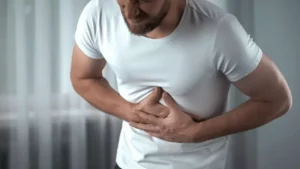
The community we find in Alcoholics Anonymous (AA) plays a vital role in helping us admit we are powerless over alcohol and begin the journey to recovery. When we attend an AA meeting, we discover a fellowship of people who understand the struggles we face and offer strength through shared experiences. This sense of belonging is critical in rebuilding a person’s life and reclaiming a person’s identity beyond addiction. No, admitting powerlessness does not mean giving up control. Instead, it means recognizing the need for help and opening yourself to effective addiction treatment programs, therapy, and support systems that empower you to rebuild your life.
Understanding Powerlessness

The good news is that there are many strategies and resources available to help you reclaim your life from addiction. The mental and emotional toll of addiction can be equally devastating. Depression, anxiety, and other mental health issues often go hand-in-hand with addiction, creating a vicious cycle that can be hard to break. It’s like being trapped in a dark room, unable to find the light switch. This is a common question asked by people who are new in their recovery journey. There is often confusion about whether being powerless is a positive or a negative thing.
- Throughout that process, he learned the importance of helping others and living by spiritual principles.
- Step One only says that, if you are truly addicted to alcohol and/or other drugs, you are completely unable (i.e., powerless) not to be addicted.
- True strength comes from recognizing the need for help and making the courageous decision to seek professional addiction treatment.
- Believing you have enough power to stop on your own feeds isolation and pride, both of which are fuel for continuing in addiction.
How Admitting Powerlessness Helps You Move Through Your 12 Steps
This practice keeps us mindful of our journey and reinforces our commitment to the twelve steps. Try making a list of experiences in your life where you notice the phenomenon of craving and another list where you experienced the mental obsession that caused you to drink or drug. The mental obsession of addiction is what keeps us trapped, even when we’re not actively drinking or using drugs.

Practical Tools for Practicing the 1st Step

When you are 2 or 10 or 20 years sober, you are still what does powerless over alcohol mean going to be powerless over alcohol. Taking the first step as an alcoholic is the most courageous act in recovery. Admitting we are powerless over alcoholism and the disease of addiction opens the door to healing and hope. AA reminds us that we are not alone, and working Step 1 is the foundation for lasting change. Embrace this moment, knowing it’s not a sign of weakness but a step toward a life of freedom, purpose, and fulfillment.
You may be powerless over addiction, but you aren’t powerless, period. Once you realize what you can and cannot change, you’re actually quite powerful. Letting go of the past, accepting your present and opening yourself up to a new way of living isn’t an easy thing to do, especially in the beginning. The 12-step road to recovery can appear pretty intimidating to someone who is just starting out, but solutions exist. Some people believe AA is intricately tied to religion by seeking a “higher power.” Rather, AA members are encouraged to understand they’re powerless in changing their addictive behavior.

Examples of Powerlessness in Sobriety

According to the National Center for Drug Abuse Statistics, an alarming 140,557 Americans die from the effects of alcohol annually, underscoring the lethal impact of this condition. Damaged relationships with family and friends, job loss due to unreliability or poor performance, and disruptive sleep patterns that impact overall health are just a few of the ways alcoholism can wreak havoc. Financial issues often arise as well, with money being spent on alcohol at the what is alcoholism expense of essential needs and responsibilities.
- Usually this is highlighted by continuing addictive behaviors despite (sometimes severe) consequences for your actions.
- Admitting powerlessness requires getting honest with yourself about reality, instead of the “stinkin’ thinkin’” (delusion and denial) that enables your addiction.
- We all have the power to guide our lives in a variety of essential ways.
- When we allow our fears to dictate our decisions, we suffer.
- But sharing your experience and the unmanageability lifts the burden of lugging them around in secret.
- A program friend of mine was very upset with how her goddaughter was living.
- Today, we’ll explore how you can gain control over your addiction by learning how to identify your triggers and create a plan for recovery.
- Rock bottom gives you the motivation to open your mind to recovery.
- I take heart in William James’ words, “Faith is a bet you can’t lose.” If I choose to believe that things I’m powerless over can work out without me, then I have more peace.
- I said acceptance doesn’t mean that you like it, it just means that you are powerless over it.
Admitting powerlessness is what reveals your true strength, and our committed staff is ready to help you find it. We offer peer-led recovery programs that are rooted in the 12-Step program of recovery from Alcoholics Anonymous. We believe that these steps are the foundation for building a healthy, sober life, and we have seen the good fruit of these teachings in the lives of our patients. To learn more about our vision and treatments, please contact us today. The 1st Step isn’t just about admitting we were powerless over alcohol or drugs—it’s about learning how to apply this principle to broader challenges in our lives. Whether it’s dealing with romantic partners, a loved one’s drinking, or overwhelming life struggles, powerlessness teaches us to let go of control and focus on what we can change.
